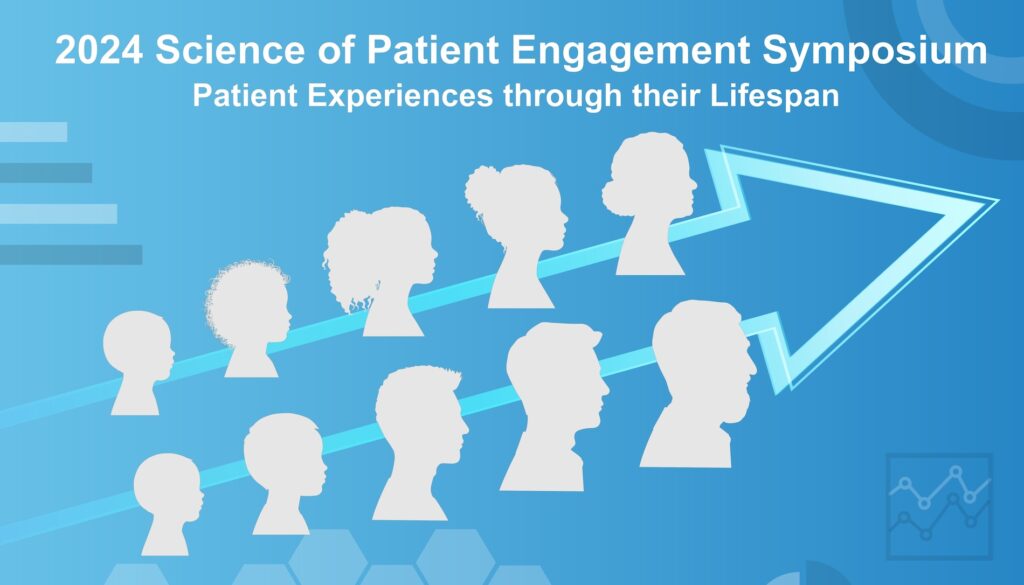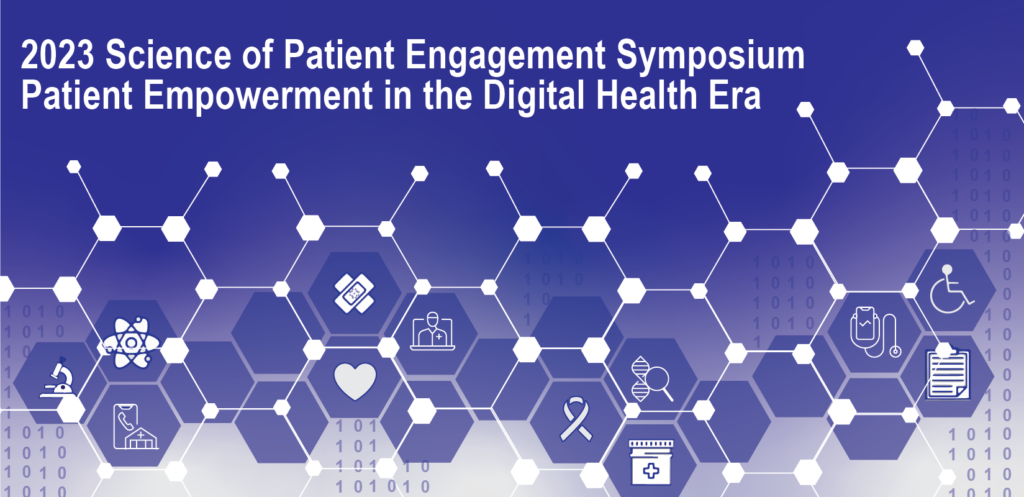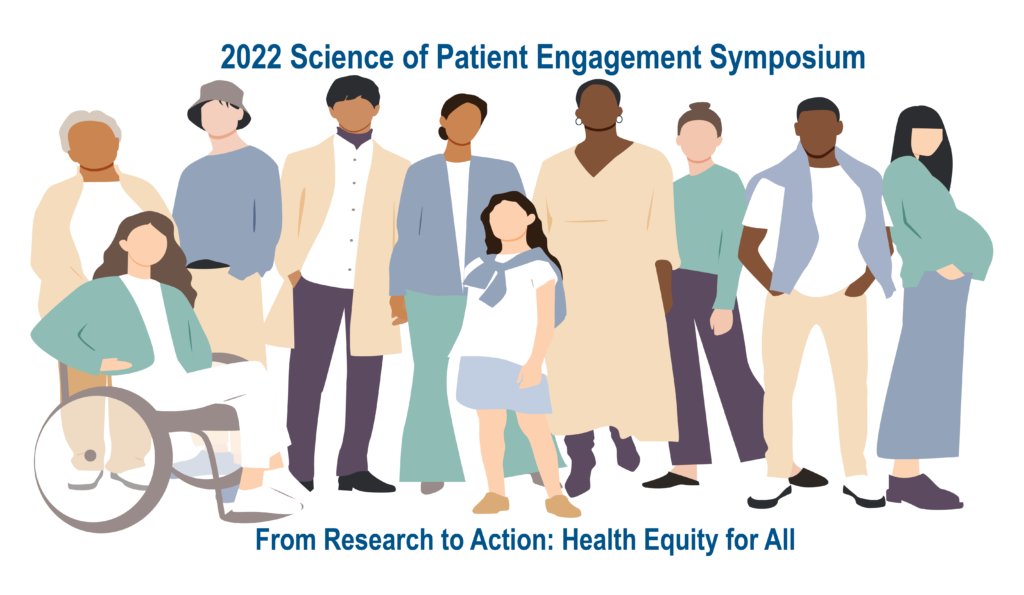2018 Chief Medical/ Scientific Officers Conference
Patient Provided Information: How Best to Store, Integrate, Share, and Learn?
Sean Khozin, MD, MPH, Director, Information Exchange and Data Transformation, Associate Director, Oncology Center of Excellence, Food and Drug Administration
Reactor Panel
- Karen Erickson, Associate Executive Director, Community Engagement, Alpha-1 Foundation
- Richard A. Moscicki, MD, Chief Medical Officer & Executive Vice President, PhRMA
Transforming Data Silos into an Arsenal
- Moderator: Daryl Pritchard, PhD, Senior Vice President, Science Policy, Personalized Medicine Coalition
- Joni Rutter, PhD, Director of Scientific Programs, NIH All of US Research Program Slides
Reactor Panel
- Tanisha Carino, PhD, Executive Director, FasterCures – A Center of the Milken Institute
- Brandy Fureman, PhD, Vice President, Research & New Therapies, Epilepsy Foundation
Data Warehousing and Sharing
- Moderator: Gavin Corcoran, MD, FACP, Executive Vice President, Research & Development, Axovant Sciences Inc.
- Angela Dobes, MPH, Senior Director, IBD Plexus, Chron’s & Colitis Foundation Slides
- Sean Khozin, MD, MPH, Director, Information Exchange and Data Transformation, Associate Director, Oncology Center of Excellence, Food and Drug Administration
- Robert McBurney, PhD, CEO, Accelerated Cure Project for Multiple Sclerosis Slides
Collecting and Using Patient-Provided Data: What are the Ethical Issues?
Camille Nebeker, Professor, University of California San Diego Slides
Creating the FDA Patient Experience Data Repository
Theresa Mullin, PhD, Associate Director for Strategic Initiatives, Center for Drug Evaluation and Research, Food and Drug Administration Slides
Unique Sources, Unique Approaches
- Moderator: Luther T. Clark, MD, FACC, FACP, Deputy Chief Patient Officer, Global Director, Scientific Medical and Patient Perspective, Office of the Chief Patient Officer Merck & Co.
- Holly Schachner, MD, US Medical Chair, Sanofi
- John Wilbanks, Chief Commons Officer, Sage Bionetworks
Leveraging Machine Learning and Artificial Intelligence: Is the Buzz Real?
- Moderator: Guy Eakin, PhD, Senior Vice President, Scientific Strategy, Arthritis Foundation
- Pietro Michelucci, PhD, Executive Director, Human Computation Institute
- Mohamed Yassine, MD, VP, Head of US Medical, UCB Slides
The Patient in the Driver’s Seat
- Moderator: George Gondo, Director of Research & Grants, Amputee Coalition
- Bruce Bebo, PhD, Executive Vice President of Research, National Multiple Sclerosis Society
- Karen Erickson, Associate Executive Director, Community Engagement, Alpha-1 Foundation
- Leslie Hanrahan, Vice President, Education and Research, Lupus Foundation of America
Meeting Highlights
During the opening keynote, Sean Khozin, MD, MPH, Director, Information Exchange and Data Transformation and Associate Director, Oncology Center of Excellence, Food and Drug Administration (FDA), discussed Patient Provided Information: How Best to Store, Integrate, Share, and Learn? Dr. Khozin provided an update on the FDA’s work to bring the patient perspective to medical product development, including an overview of data sources that the Agency is currently exploring. He stated that “FDA’s procedures should be as modern as the products they are being asked to evaluate.” FDA is interested in how electronic health records and administrative claims data, but also patient-generated data for example from wearables or digital apps could contribute to evaluations. He also discussed therapeutic-specific departments and other structural changes FDA is considering to modernize product reviews.
Karen Erickson, Associate Executive Director, Community Engagement, Alpha-1 Foundation and Richard A. Moscicki, MD, Chief Medical Officer & Executive Vice President, PhRMA provided a reaction to Dr. Khozin’s remarks. They both support the vision and steps outlined by Dr. Khozin and discussed emerging challenges related to privacy and security when we link different data sources. Both acknowledged that linking is needed to maximize the benefits of emerging technologies, but consideration of patient perspectives on these issues is critically important.
Daryl Pritchard, PhD, Senior Vice President, Science Policy, Personalized Medicine Coalition moderated a session on Transforming Data Silos into an Arsenal. Joni Rutter, PhD, Director of Scientific Programs, NIH All of US Research Program, introduced the All of Us initiative in a presentation on Accelerating Precision Medicine for All of Us.
Dr. Rutter described that the goal of the All of Us Research Program is to help drive precision medicine – that is, to get the right treatment to the right person at the right time and with the right dose. Today, health care is often targeted to the average patient, not the individual. The Program is currently enrolling participants from across the United States with the objective of enrolling at least one million participants. To ensure that a diverse, nationally representative population is included, the Program is currently developing a “Network of Direct Volunteers” located across the country. As of May 2018, more than 124,000 participants had already been enrolled, including 78% currently under-represented in biomedical research. A Research Portal with an initial public dataset will become available in 2019.
Tanisha Carino, PhD, Executive Director, FasterCures – A Center of the Milken Institute and Brandy Fureman, PhD, Vice President, Research & New Therapies, Epilepsy Foundation, provided a reaction to Dr. Rutter’s presentation. Dr. Carino discussed many of the global initiatives to use technology to improve health. For example, China is sequencing 1 billion genomes, Israel is investing significant money for digital health, and Australia is automatically enrolling every citizen in their centralized health IT system, with an opt-out opportunity. Dr. Fureman described how advances in wearable technologies could be transformative for conversations between epilepsy patients and their clinician during routine appointments. For example, wearables could document tonic-clonic seizures over time, which could provide important insights into disease activity and play an important role in shared decision-making.
A session on Data Warehousing and Sharing was moderated by Gavin Corcoran, MD, FACP, Executive Vice President, Research & Development, Axovant Sciences Inc. Angela Dobes, MPH, Senior Director, IBD Plexus, Chron’s & Colitis Foundation and Robert McBurney, PhD, CEO, Accelerated Cure Project for Multiple Sclerosis each described insights from their organization’s patient-generated data sources.
Ms. Dobes introduced attendees to IBD Plexus, a cloud-based research information exchange and knowledge sharing platform to accelerate research in inflammatory Bowel Disease (IBD). The platform links clinical, genetics, patient-reported, health record, and other data sources. Patient surveys can provide researchers with insights into IBD symptoms and patient experiences. The database is intended to transform the care of IBD patients. Of note, researchers are required to contribute all project-specific generated data back into Plexus.
Dr. McBurney described how the Accelerated Cure Project for MS originally developed a biosample repository in 2005 and expanded upon this work with the iConquerMSTM: People-Powered Research Network established in 2014. Patients participate not only by regularly contributing data, but as important partners through their governance role and by pre-approving research studies before researchers are granted access to the data.
Prof. Camille Nebeker, Ed.D., M.S., Assistant Professor, University of California San Diego presented on Collecting and Using Patient-Provided Data: What are the Ethical Issues? Prof. Nebeker described how her work on research literacy and “Tech-Ethics” intertwines. She described how institutional review board (IRB) procedures are insufficient to appropriately evaluate ethics related to digital technologies. For example, IRB’s often neglect to consider bystanders’ inability to consent when study participants are asked to video record their day-to-day lives. Prof. Nebeker provided suggestions for how employees can help shape ethical practices within their organizations
The Afternoon Keynote on Creating the FDA Patient Experience Data Repository was presented by Theresa Mullin, PhD, Associate Director for Strategic Initiatives, Center for Drug Evaluation and Research, FDA. Dr. Mullin described how following the initial Patient-focused Drug Development (PFDD) meetings, it was already clear to the Agency that “Patients with chronic serious disease are experts on what it’s like to live with their condition.” She reviewed the progression of FDA’s PFDD initiative, from publication of the 2009 Guidance on PatientReported Outcome Measures to the 2018 release of PFDD Guidance 1 draft guidance, public workshops on Guidances 2 and 3, and launch of FDA’s webpage on “External Resources related to Patient Experience.” Interested stakeholders can submit publicly available reports and documents for publication on the new webpage.
Dr. Mullin also described an envisioned program in which qualifying third parties would facilitate development of publicly available core set(s) of clinical outcome assessment (COA) measures and endpoints.
Luther T. Clark, MD, FACC, FACP, Deputy Chief Patient Officer, Global Director, Scientific Medical and Patient Perspective, Office of the Chief Patient Officer Merck & Co. moderated a session on Unique Sources, Unique Approaches featuring Holly Schachner, MD, US Medical Chair, Sanofi and John Wilbanks, Chief Commons Officer, Sage Bionetworks. They described how the current lack of interoperability between existing systems leads to challenges in assembling fit-for-purpose datasets. To overcome this challenge, Dr. Schachner described Sanofi’s work developing a “data lake” which integrates disparate data sources. Mr. Wilbanks described how longitudinal data can be useful for individual patients. For example, data on an individual patients’ activities, diet, etc. could help them recreate “good days” and identify triggers on “bad days.”
Pietro Michelucci, PhD, Executive Director, Human Computation Institute and Mohamed Yassine, MD, VP, Head of US Medical, UCB presented on Leveraging Machine Learning and Artificial Intelligence: Is the Buzz Real? Dr. Michelucci described several examples of how machine learning leads to machines handling more complex tasks over time – for example identifying clogged blood vessels in the brain. Dr. Yassine explained how machinelearning refers to a spectrum of methodologies. Artificial Intelligence can be useful to enable earlier patient identification and diagnosis, reduce total cost of care, and improve workflow efficiencies.
Both described how machine learning and artificial intelligence are important tools and can improve healthcare research, but only to an extent. For example, machines can compute greater levels of data faster and more efficiently that humans can. However, while machines can detect anomalies, it often takes a human to determine which anomalies are meaningful and offer context for why anomalies exist. Thus, for many applications, partnerships between machines and humans can offer greater efficiency and accuracy than either on their own.
George Gondo, Director of Research & Grants, Amputee Coalition moderated a session on The Patient in the Driver’s Seat, which featured Bruce Bebo, PhD, Executive Vice President of Research, National Multiple Sclerosis Society, Karen Erickson, Associate Executive Director, Community Engagement, Alpha-1 Foundation, and Leslie Hanrahan, Vice President, Education and Research, Lupus Foundation of America.
Hanrahan described how Lupus patients are re-engaging in research following years of frustration over lack of availability of new treatments. For example, fifteen years ago there were only two companies interested in developing treatments for Lupus. Today, more than thirty companies are exploring drug development for Lupus patients. Hanrahan explained their patient registry prioritizes patients’ wants and needs and it has drawn significant interest from researchers.
Ms. Erickson described how the Alpha-1 Foundation has made a concerted effort to ensure that patients are involved in their decision-making since the organization’s inception. For example, the Foundation is the largest funder of Alpha-1-related research around the world and patients participate in all research funding reviews.
They remarked that it is an exciting time for the patient community and patients are excited to help write the roadmap toward patient-centered drug development and other research across the ecosystem.


